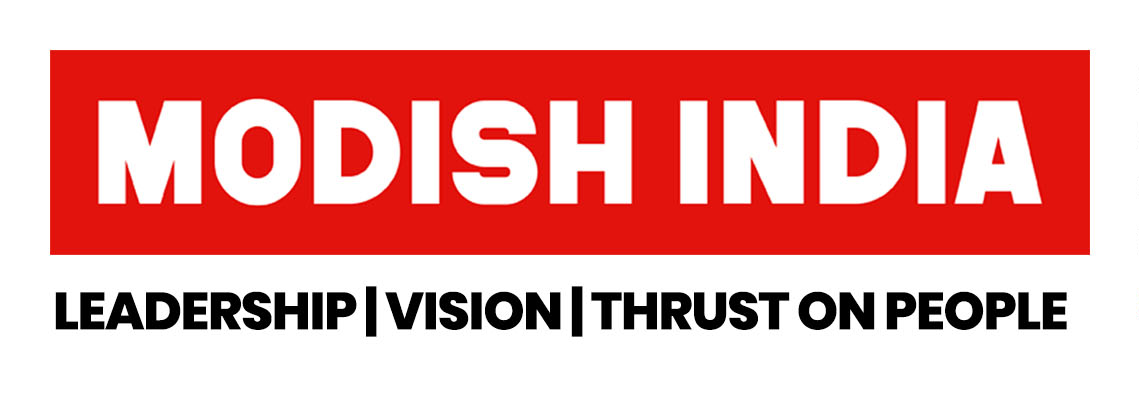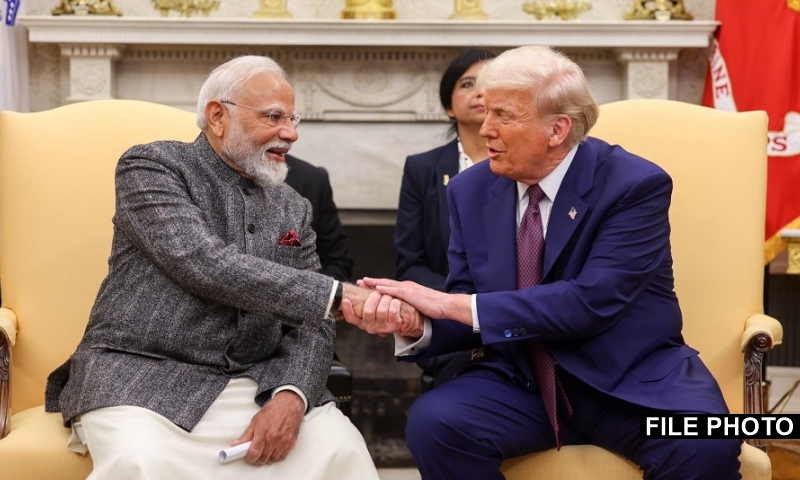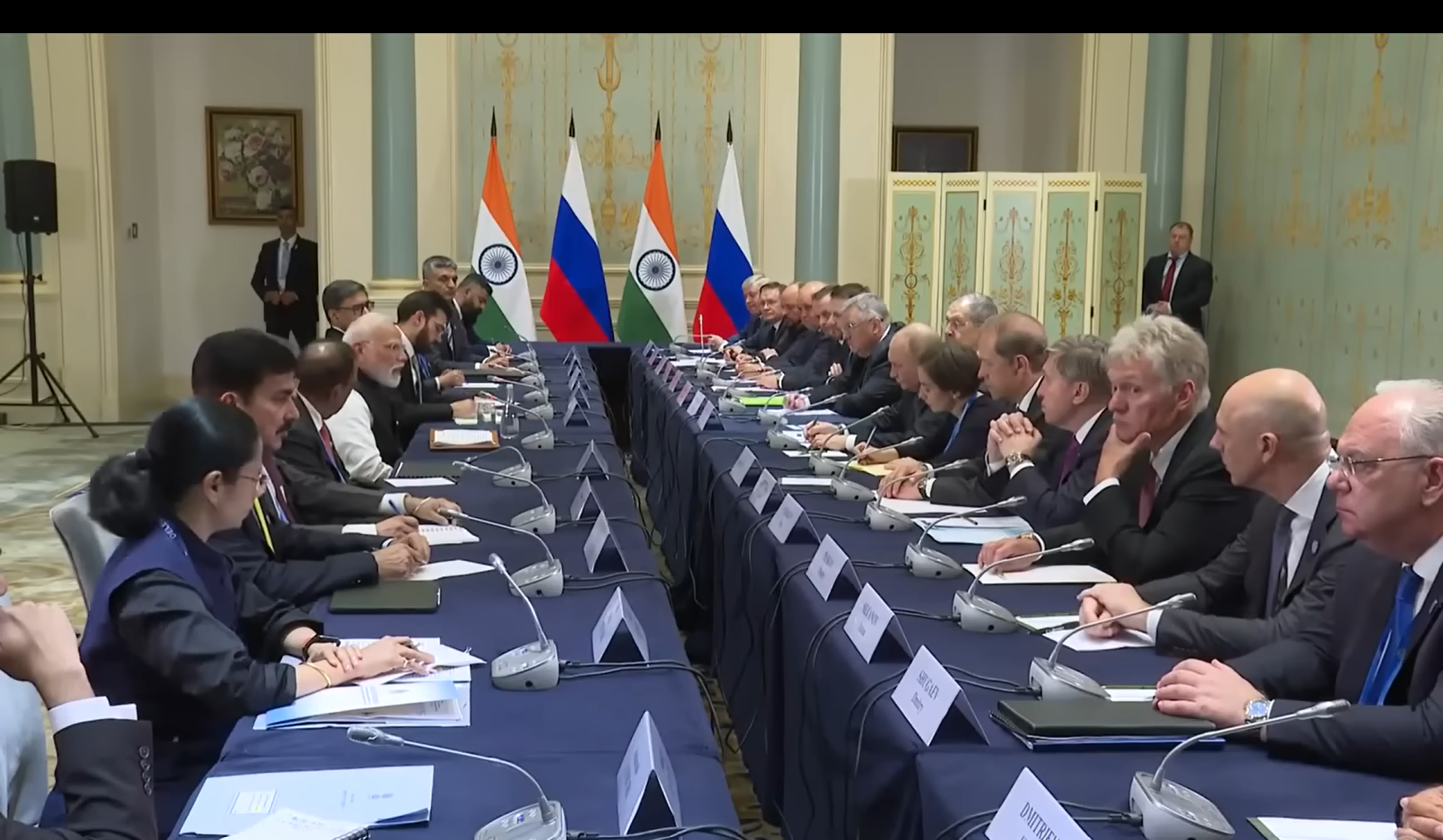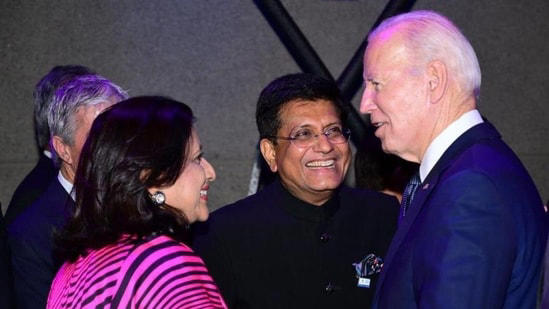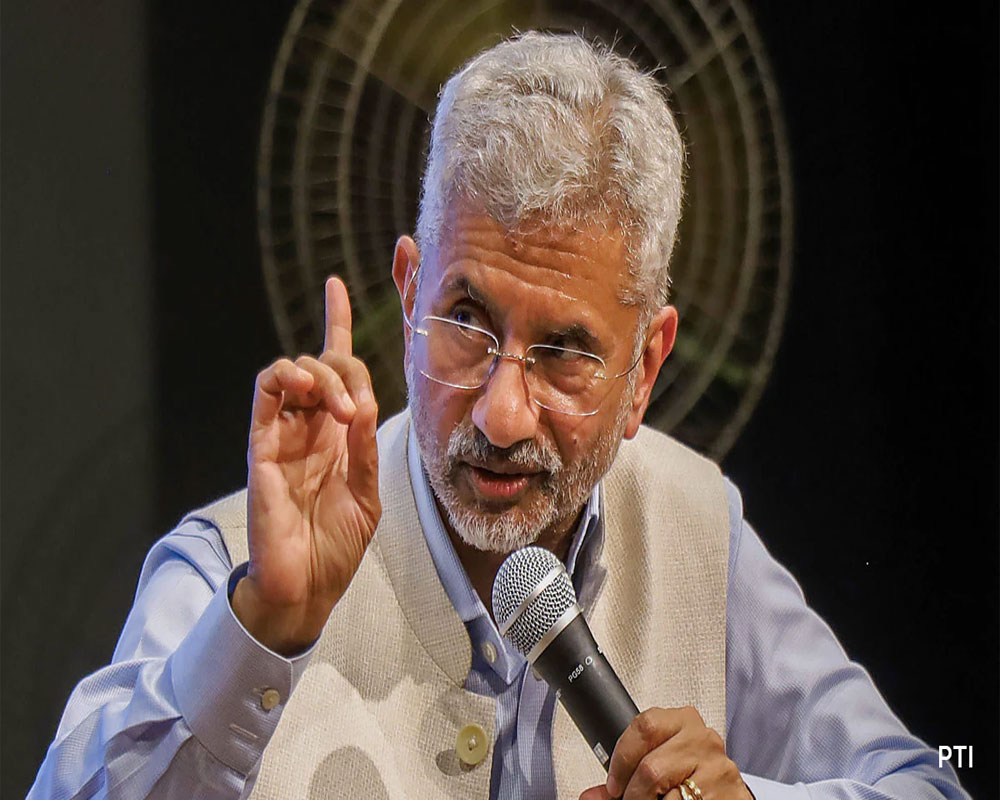
“India seeks to promote corporations with diverse partners. From the era of Non-Alignment, we have now evolved to that of ‘Vishwa Mitra’ – a friend to the world.”
External Affairs Minister S. Jaishankar on 26 September, while hitting out at a diplomatic standoff with Canada, said respect for territorial integrity and non-interference in internal affairs cannot be exercised in cherry-picking.
The crux of Dr. Jaishankar’s speech came as a well-directed attack on Canada in the backdrop of diplomatic standoff ‘.He stood on a strong foot while asking the UN member states not to allow “political convenience” to determine responses to terrorism, extremism, and violence, and asserted that the days when a few nations set the agenda and expected others to fall in line are over.
Highlight Points in EAM Shri S. Jaishankar’s speech:
1) We must never again allow an injustice like vaccine apartheid to recur. Climate action too cannot continue to witness an evasion of historical responsibilities. The power of markets should not be utilized to steer food and energy from the needy .
2) Nor must we countenance that political convenience determines responses to terrorism, extremism, and violence. Similarly, respect for territorial integrity and non-interference in internal affairs cannot be exercised in cherry-picking.
Vishwa Mitra – A Friend to the world
3) India seeks to promote corporations with diverse partners. From the era of Non-Alignment, we have now evolved to that of ‘Vishwa Mitra’ – a friend to the world.
G20 Summit
3) Recognising that growth and development must focus on the most vulnerable, we began the presidency by convening the Voice of the Global South Summit. This enabled us to hear directly from 125 nations and place their concerns on the G20 Agenda. As a consequence, issues that deserve global attention got a fair hearing. More than that, the deliberations produced outcomes that have great significance for the international community.
4) It was also noteworthy that at India’s initiative, the African Union as a permanent member of the G20. By doing so, we gave voice to an entire continent which has long been its due. This significant step in reform should inspire the United Nations, a much older organization, to also make the Security Council contemporary. Much India Has to Share
5) Our fullest support to this UNGA’s theme of rebuilding trust and reigniting global solidarity. This is an occasion to take stock of our achievements and challenges even while sharing our aspirations and goals. Indeed, regarding both, there is much India has to share.
The world is witnessing an exceptional period of turmoil. As it is, structural inequities and uneven development have imposed burdens on the Global South. But stresses have been aggravated by the impact of the Covid-19 pandemic and the repercussions of ongoing conflicts, tensions and disputes. As a result, socio-economic gains of recent years have been rolled back.Resources for sustainable development are severely challenged. And many countries really struggle to make ends meet. Navigating the future appears even more daunting today.
“In the words of Prime Minister Narendra Modi, it was to bridge divides, dismantle barriers and sow seeds of collaboration that nourish a world, where unity prevails over discord and where shared destiny eclipses isolation. The New Delhi G-20 Leaders’ Declaration articulates our collective ability to do so”.
At this juncture, it was with a sense of exceptional responsibility that India took up the Presidency of the G20. Our vision of ‘One Earth, One Family, One Future’ sought to focus on the key concerns of the many, not just the narrow interests of a few. In the words of Prime Minister Narendra Modi, it was to bridge divides, dismantle barriers and sow seeds of collaboration that nourish a world, where unity prevails over discord and where shared destiny eclipses isolation. The New Delhi G-20 Leaders’ Declaration articulates our collective ability to do so. Recognizing that growth and development must focus on the most vulnerable, we began the G20 Presidency by convening the ‘Voice of the Global South’ Summit. This enabled us to hear directly from 125 nations and place their concerns on the G20 agenda. As a consequence, the issues which deserve global attention got a fair hearing. More than that, the deliberations produced outcomes that have great significance for the international community.t was also noteworthy that at India’s initiative, the African Union was admitted as a permanent member of the G20. By doing so, we gave voice to an entire continent which has long been its due. This significant step in reform should inspire the United Nations, a much older organization, to also make the Security Council contemporary. Broad representation is after all, a pre-requisite for both effectiveness and credibility.
National Interest
All nations pursue their national interests. We, in India, have never seen that as being in contradiction with global good. When we aspire to be a leading power, this is not for self-aggrandizement but to take on greater responsibility and make more contributions. The goals we have set for ourselves will make us different from all those whose rise preceded ours. India demonstrated this during the Covid through the Vaccine Maitri initiative. Our endeavors like the International Solar Alliance and the Coalition for Disaster Resilient Infrastructure have gathered wide support. Our espousing of the International Year of Millets is enhancing global food security today. We have built development partnerships with 78 nations across geographies. After all, the Global Multidimensional Poverty Index records that we have halved the global MPI value in the last 15 years, lifting 415 million people out of poverty. That progress has now moved on to a higher level, with ambitious socio-economic initiatives covering financial inclusion, food and nutrition, health and water supply, as well as energy and housing. We are seeking to demonstrate that social welfare need not be the sole prerogative of the developed world. We must never again allow an injustice like vaccine apartheid to recur. Climate action too cannot continue to witness an evasion of historical responsibilities. The power of markets should not be utilized to steer food and energy from the needy to the wealthy. Nor must we countenance that political convenience determines responses to terrorism, extremism and violence. Similarly, respect for territorial integrity and non-interference in internal affairs cannot be exercises in cherry picking
India has entered the Amrit Kaal, a quarter century where greater progress and transformation awaits us. We are confident that our talent and creativity, now so visibly unleashed, will power us forward. The world saw a glimpse of what is to come when our Chandrayaan-3 landed on the moon.
When reality departs from rhetoric, we must have the courage to call it out. Without genuine solidarity, there can never be real trust. This is very much the sentiment of the Global South. India has entered the Amrit Kaal, a quarter century where greater progress and transformation awaits us. We are confident that our talent and creativity, now so visibly unleashed, will power us forward. The world saw a glimpse of what is to come when our Chandrayaan-3 landed on the moon. Today, our message to the world is in digitally enabled governance and delivery, in the widening ambit of amenities and services, in rapidly growing infrastructure, and in our energetic Startup culture. It is visible too in vibrant cultural expressions, such as in the arts, yoga, wellness, and lifestyle.Our latest assertion is in a pathbreaking legislation to reserve one-third of the seats for women in our legislatures.
I speak for a society where ancient traditions of democracy have struck deep modern roots. As a result, our thinking, approaches and actions are now more grounded and authentic. As a civilizational polity that embraces modernity, we bring both tradition and technology equally confidently to the table. It is this fusion that today defines India, that is Bharat.”
